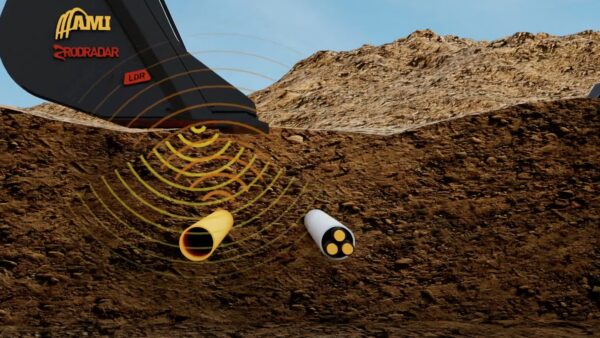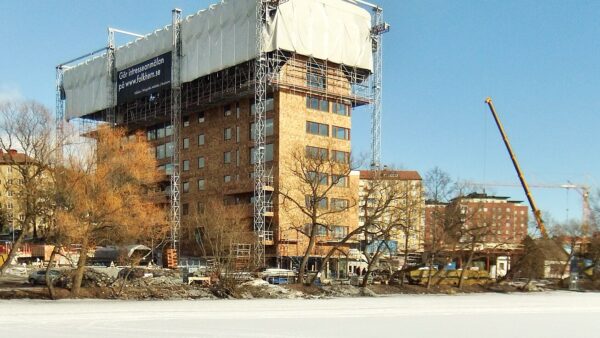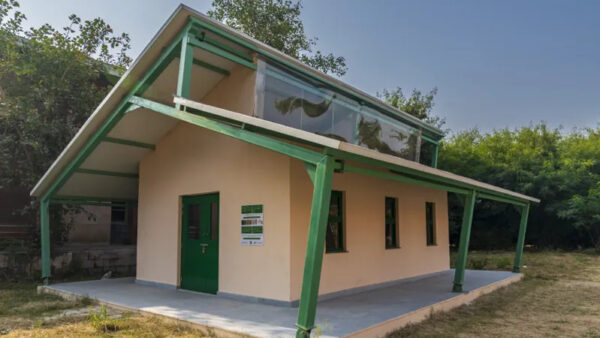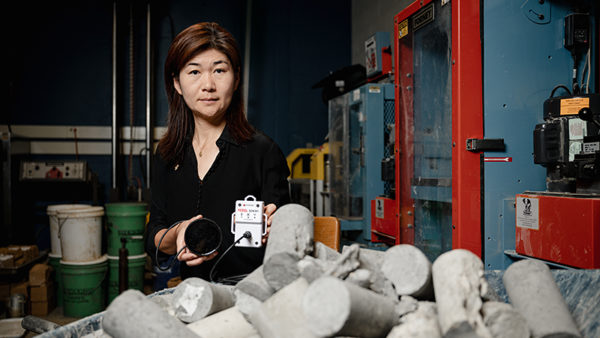Broad Group’s plans to throw up the world’s tallest building in a few months in China have been subject to a steady seepage of chill from state-sanctioned media. But it doesn’t matter, says Rod Sweet.
The world’s tallest building should have been built by now – not the Burj, the one 10m taller, in Changsha, China.
Broad Group, the air-conditioning-giant-turned-builder, was supposed to start in November and be finished by now, according to the more optimistic of its varying estimates.
Sky City, the 838m, 220-storey steel-framed residential tower in Hunan Province was to use a fifth of the energy consumed by conventional designs, cost less than half what the Burj cost to build ($631.9m versus $1.5bn), and take just a few months, thanks to Broad’s revolutionary factory prefabrication technique.
The Burj took five years.
On a smaller scale, Broad did something similar with the 30-storey New Ark Hotel at Dongting Lake near Changsha, built in just 15 days.
So, many are waiting. But the wait is stretching out. Broad says it has submitted its plans to the municipal authorities, and English-language newspaper China Daily reports that the company has bought 67,300 sq m of land in Changsha for the project.
But approval has not been forthcoming. Our latest request for an interview from Broad was declined, with an anonymous spokesperson emailing by iPhone only to say: “We are waiting for the permit from the government. No news to be released.”
Meanwhile, Chinese media have been reporting a chilly official reaction to Sky City.

Zhang Yue: prefab model
China Daily, which stays close to the official party line, quoted high-ups at both the China Academy of Urban Planning and Design, and the China Academy of Building Research, as saying such a tall building would be a fire hazard.
One added it could be vulnerable to subsidence, although he admitted to not being familiar with the ground conditions of Changsha.
China Daily even reported an official in Changsha’s planning bureau as denying his office had received the plans.
Taiwanese website Want China Times reported further negative comment in the Chinese-language 21st Century Business Herald, in Guangzhou. There, an official from the Hunan building department is reported to have said that his superiors are “inclined towards not approving the project because of safety concerns, since a large part of the building is meant for residential purposes”.
Given China’s rampant tall-building development in the last decade, this chill is surprising.
On the other hand, the loss of life caused by collapsing buildings during the 2008 earthquake will have made officials extremely sensitive about tall building safety, so this proposal will be subject to extra careful scrutiny because it’s a focus of worldwide attention now.
Yinchuan City plans’
But Broad has not been sitting around. There are reports, in China Economic Herald, translated by Next Big Future, of Broad’s plans to build a 100-storey, 410-metre mixed-use tower in Yinchuan City in China’s remote north-west.
And anyway, Sky City is not really about Sky City.
The proposal itself is peculiar, compared to the usual sky-puncturing property plays like the Burj or Saudi Arabia’s Kingdom Tower. It’s planned to be 83% residential in a largely industrial city far from the millionaires of Guangdong. How it will make money is not clear, and Broad Group is financing it itself.
I believe Broad’s larger-than-life chairman, Zhang Yue, who bet big on unconventional absorption-chilling technology for his air conditioners, and was China’s 210th richest man last year, according to Forbes, would rather not build Sky City at all.
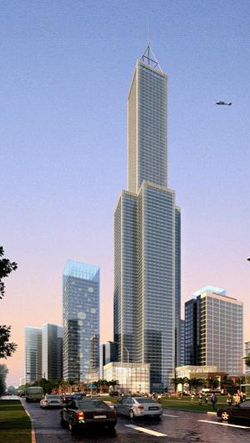
Broad has plans in Yinchuan City
His eyes are not on the tallest, fastest, most efficient and sustainable building on the planet, but rather a more mundane but commercially vast proposition – affordable housing all over the world.
China has stated plans to build 36 million social housing units by 2015, at a cost of nearly $800bn.
It sees prefabrication as the way forward, but precast concrete is the reigning method, and mid- and high-rise steel frame residential construction is unknown. Building regulations don’t address them.
Yet Mr Zhang’s ultimate game is to be number one home builder. He plans to roll out Broad’s steel prefab model across the country, and he doesn’t want to stop there.
“So far, we have developed six franchisees, in Hubei, Henan, Shanxi, Ningxia, Shandong and Fujian provinces,” he told us in an interview last year. “In the future, we will have franchisees in each province, as well as other countries.
“Ultimately,” he said, “I hope we will be able to supply 30% of the global construction market.”
To capture imagination in a vast market, and to get the necessary regulatory alignment from the centre, Mr Zhang needs a titanic gesture. Sky City is such a gesture, and it may already have worked, whether it gets built or not.
It could be the most ambitious and interesting built-environment business manoeuvre in many years.





